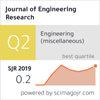基于 FMEA-FTA 的牛肉供应链食品安全和清真风险分析的区块链技术设计
IF 0.9
4区 工程技术
Q3 ENGINEERING, MULTIDISCIPLINARY
引用次数: 0
摘要
牛肉对身体健康有重要作用。食品安全和清真是消费者购买牛肉的主要因素。然而,在现实中,牛肉供应链中的一些活动导致状态变化不安全,不适合消费。这是由于牛肉供应链系统中食品安全和清真监管薄弱造成的。因此,本研究提出利用区块链技术加强牛肉供应链的食品安全和清真监管体系。本研究的目的是:(1)识别食品安全和清真风险因素,(2)开发区块链技术设计,以减轻牛肉供应链中的食品安全和清真风险。本研究采用FMEA方法度量风险,采用FTA进行风险分析。结果显示,在牛肉供应链中确定了30个风险。风险最高的是产品上没有清真认证。这30个风险被分为4个风险,包括极端优先级风险、11个高优先级风险、4个中等风险和11个可接受风险。基于这些结果,区块链技术在最大限度地降低风险方面的作用是在数据流中,作为牛肉供应链中食品安全和清真标准控制和监督系统的一部分,交易将更容易跟踪、更透明、更安全。这项研究对供应链的透明度,产品跟踪记录的准确性,食物中毒的预防,改善清真合规,风险管理,从而提高消费者信心具有重要意义。本文章由计算机程序翻译,如有差异,请以英文原文为准。
Blockchain technology design based on food safety and halal risk analysis in the beef supply chain with FMEA-FTA
Beef has an important role in the health of the body. Food safety and halal are the main factors for consumers in purchasing beef. However, in reality, several activities in the beef supply chain result in status changes to be unsafe and not halal for consumption. This occurs due to weak food safety and halal supervision in the beef supply chain system. Therefore, this study proposes the use of blockchain technology to strengthen the food safety and halal supervision system in the beef supply chain. The objectives of this study are (1) to identify food safety and halal risk factors, and (2) to develop a blockchain technology design for mitigating food safety and halal risks in the beef supply chain. This research uses the FMEA method to measure risks and FTA for risk analysis. The results showed that 30 risks were identified in the beef supply chain. The highest risk is the absence of a halal certificate on the product. The 30 risks are grouped into 4 risks that are included in extreme priority risk, 11 risks in high priority risk, 4 risks in moderate risk, and 11 risks as acceptable risk. Based on these results, the role of blockchain technology to minimize risk is in the flow of data, and transactions will be easier to track, more transparent, and safer to use as part of the control and supervision system for food safety and halal standards in the beef supply chain. This research has implications for transparency in the supply chain, the accuracy of product track records, prevention of food poisoning, improving halal compliance, risk management and thus increasing consumer confidence.
求助全文
通过发布文献求助,成功后即可免费获取论文全文。
去求助
来源期刊

Journal of Engineering Research
ENGINEERING, MULTIDISCIPLINARY-
CiteScore
1.60
自引率
10.00%
发文量
181
审稿时长
20 weeks
期刊介绍:
Journal of Engineering Research (JER) is a international, peer reviewed journal which publishes full length original research papers, reviews, case studies related to all areas of Engineering such as: Civil, Mechanical, Industrial, Electrical, Computer, Chemical, Petroleum, Aerospace, Architectural, Biomedical, Coastal, Environmental, Marine & Ocean, Metallurgical & Materials, software, Surveying, Systems and Manufacturing Engineering. In particular, JER focuses on innovative approaches and methods that contribute to solving the environmental and manufacturing problems, which exist primarily in the Arabian Gulf region and the Middle East countries. Kuwait University used to publish the Journal "Kuwait Journal of Science and Engineering" (ISSN: 1024-8684), which included Science and Engineering articles since 1974. In 2011 the decision was taken to split KJSE into two independent Journals - "Journal of Engineering Research "(JER) and "Kuwait Journal of Science" (KJS).
 求助内容:
求助内容: 应助结果提醒方式:
应助结果提醒方式:


